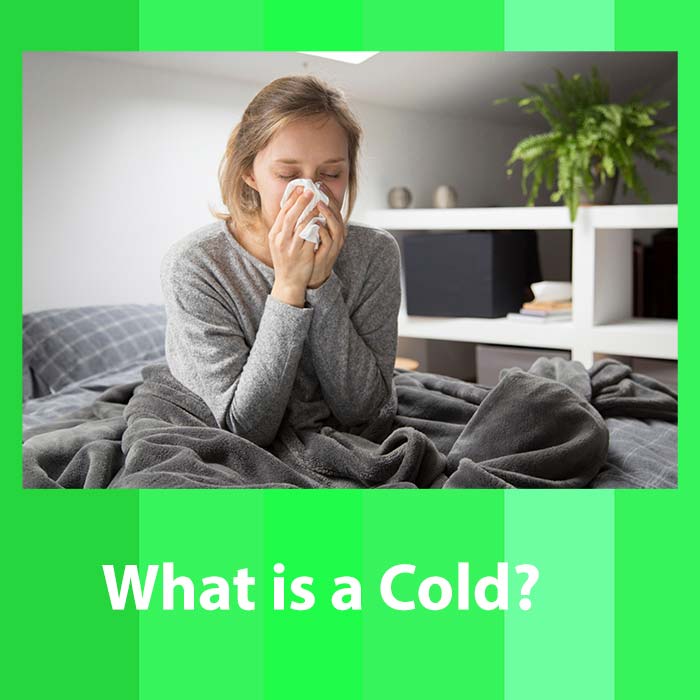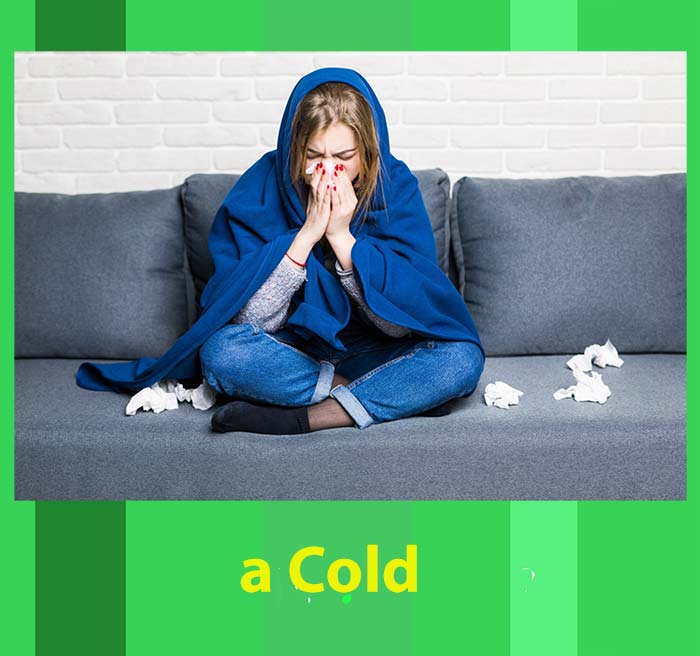What do you know about a Cold?
What is a Cold?
The most frequent cause of trips to the doctor and the leading cause of absences from work and school are colds. An upper respiratory tract infection masquerades as a cold. One of the most widespread viral illnesses in both children and adults.
a cold is a disease related to the respiratory system the main cause of infection are germs and viruses no age group is safe from it this disease affects the sinuses, nose, trachea, and throat and is easily transmitted, of course, most of the time it is easily treated. There are nearly 200 different types of cold viruses, with rhinovirus being the most prevalent.
Rhinovirus is the main cause of cold this infection multiplies at a temperature of 33 to 35 degrees Celsius. that is why the disease occurs mainly in temperature bit.
a cold usually starts will fatigue, sneezing, and headache and continues with symptoms such as cough, sore throat runny nose, and fever and it usually resolves after 7 to 10 days cold infection is spread in the environment by spreading of virus-containing droplets by sneezing.

Ways to prevent cold
An easy-to-transmit cold virus.
– avoid being near sick people.
The patient’s personal items should be kept apart.
-if you have a cold, remain at home and rest.
– Wash your hands for 30 seconds with soap and water to get rid of contamination and germs.
to refrain from touching your mouth, nose, or eyes with your hands.
-Whenever you sneeze or cough, cover your front of the mouth with your hand, arm, or handkerchief.
Causes of Cold
The common cold is caused by the rhinovirus family after every cold, the patient’s immune system becomes immune to the pathogenic virus, and the disease antibody remains in the body every person may get a cold several times during the year.
Children, especially those who spend a lot of time at school, are the most affected by colds.

The difference between a Cold and the Flu
Flu: muscle pain, high fever, chills, nausea, anorexia
A cold: sore throat, sneezing, cough, headache, fatigue, runny nose.
Flu treatment:
So far, there is no specific treatment for the common cold,
But the use of techniques and medicines reduces the severity of cold symptoms.
Drink warm water, gargle with salt water, and get enough rest.
The best cold medicines for treat
Anti-runny nose medicine: antihistamines are the best medicine to prevent runny noses Like diphenhydramine and chlorpheniramine.
These drugs are hypnotic and should not be used while driving and operating machines that require alertness.
Cough medicine: dextromethorphan is the best cold medicine to reduce cough and eliminate it.
This medicine dilutes secretions and stops coughing.
Anti -headache medication:
Such as ibuprofen, naproxen, acetaminophen
Analgesics help to reduce all types of pain caused by the disease.
Useful foods for cold:
Chicken soup, vegetable broth, ginger, hot and pale tea.
Food rich in vitamin D help treat colds.
Foods rich in vitamin D include.
Salmon, mushroom, egg yolk, shrimp.
Foods rich in vitamin A:
Vitamin A plays an important role in the immune system.
Therefore, when you have a cold, try to include more carrots, spinach, bell peppers, and pumpkin in your diet.
a Cold
Leave a Reply